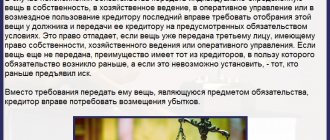The number one question with any copyright infringement is: “what will happen to me for this?”
Indeed, often the only motivator to refrain from violating other people’s intellectual (including copyright) rights is not awareness of the complexity of the author’s work or gratitude to the creator of the work, but a banal reluctance to take responsibility for one’s illegal actions.
Despite the apparent stinginess of legal instruments for prosecuting violators to the average person, in reality, the legislation of the Russian Federation can pleasantly surprise you with the range of possibilities for bringing to justice. It is worth noting that for committing one unlawful act, the violator can be brought to both civil and criminal ( or administrative) liability. In this case, only administrative and criminal liability are mutually exclusive.
What happens to copyright infringement?
In short, the entrepreneur will be prohibited from using the content and forced to pay compensation. For example, they will ask you to remove a product with someone else’s logo from the store and pay the copyright holder 200,000 rubles. At the same time, money for the purchase and lost profits will not be reimbursed. And for the theft of a trademark, you will be additionally fined in favor of the state.
Article: How to get compensation for copyright infringement
Now in detail.
Civil liability: pay the copyright holder
At the claim of the copyright holder, the court will force the entrepreneur to do the following under Art. 1252 Civil Code of the Russian Federation:
— Stop using. Remove other people's product photos from the site, stop using the program without a license.
— Indicate the author and a link to the source. If they reprinted or quoted, but it looks like it’s your own.
— Destroy counterfeit goods for your own money. For example, toys in the form of cartoon characters that are sold without an agreement with the trademark owner.
— Pay damages or compensation in the amount of 10,000 to 5,000,000 rubles. As an option - twice the cost of the licensed program - Art. 1301, art. 1311, art. 1515 of the Civil Code of the Russian Federation.
— Publish the court decision on copyright infringement.
Before considering the dispute, the court may block controversial materials on the site under Art. 1302 of the Civil Code of the Russian Federation. For example, a training channel where other people’s video tutorials are posted. It will not be possible to work through such a resource during the blocking for several months.
Administrative liability: fine to the state
For someone else's trademark, violators are fined under Art. 14.10 Code of Administrative Offenses of the Russian Federation. The fine for copying for citizens is from 5,000 to 10,000 rubles, for organizations - from 50,000 to 200,000 rubles. The fine for selling goods with someone else's trademark for citizens is in the amount of two times the cost of the goods, for organizations - in the amount of five times the cost. And this does not include compensation for the trademark owner.
Criminal liability: punishment from the state for trademark theft and plagiarism
If the owner of the logo has lost more than 250,000 rubles because of you, this is already criminal liability under Art. 180 of the Criminal Code of the Russian Federation. Punishment ranges from a fine of 100,000 rubles to imprisonment for two years.
A criminal record is also given for appropriation of authorship and trade in counterfeit goods when the copyright holder has missed out on profits of more than 100,000 rubles. The punishment is approximately the same as for the previous crime - from a fine to prison under Art. 146 of the Criminal Code of the Russian Federation.
Situation No. 2
You witnessed some event (a meteorite fell, there was a fire, a terrorist attack, etc.), you filmed it and posted it on social networks. You turn on the TV, and your footage is broadcast on all TV channels.
— This is an example of a violation of your copyright. The video is used for commercial purposes. Therefore, as a lawyer, I want to warn everyone - any photograph, even one that is publicly available on the Internet, has its rightful owner. And he can assert his rights and demand compensation from you. Therefore, do not steal photos on the Internet for publications, advertising and other commercial purposes!
How not to violate copyright
In order to avoid getting compensation and avoid spending money on troublesome lawsuits, you need to follow a simple rule: always take content with the permission of the copyright holder. For commercial use, the recommendations are approximately the same.
Conclude agreements with copyright holders
For the legal use of intellectual property, paid agreements for the transfer of exclusive rights are concluded with the copyright holder.
When an object is taken away forever, an agreement for the alienation of the exclusive right is drawn up - Art. 1234 Civil Code of the Russian Federation. Such an agreement can be concluded with a photographer or illustrator if you buy ready-made content for websites or booklets. Then the photos and drawings will become your property. If you want, you can sell them yourself to another site. The only thing is that you must always indicate the author.
An object is taken for temporary use under a license agreement - Art. 1235 of the Civil Code of the Russian Federation. It's a bit like renting. Licenses are issued for programs, music, and videos. Typically, license agreements are published on the website from which the content is downloaded. For example, this is what the contract for using the Elba service looks like.
Sometimes you don’t have to pay for a license, for example, in photo stocks.
Content to order is made under an author's order agreement or a contract - Art. 1288, 1296 Civil Code of the Russian Federation. An author's order is placed with an individual, and a contract with a company. When drawing up a contract for content, make sure that the exclusive right to the object is transferred to the customer and not transferred under a license. Otherwise, in a couple of years you risk seeing your corporate identity on another site. Because the license has expired.
A license is also purchased for background music in a bar, hair salon and store. How to safely play music indoors for clients is the topic of a separate large analysis. In general terms, things are like this.
Each song has a performer, lyricist and composer. The song itself is intellectual property, and it can be played in a commercial establishment for visitors only with the permission of the copyright holder. Most often, songwriters transfer the rights to a special organization - the Russian Authors' Society (RAO). Such an organization becomes the copyright holder and, on behalf of the musicians, inspects the establishments where the music is played. And after verification, he offers to conclude a license agreement and pay monthly royalties, and for what has already been lost, pay compensation.
One entrepreneur paid RAO 160,000 rubles by court decision for music in a cafe without a license - case No. A32-27234/2018. So this is not just a legal myth.
Therefore, it is better to buy a license from the copyright holder, pay every month and not wait for a lawsuit. Alternatively, take music with an open license or from the public domain - more on that below.
Follow citation rules
Quoting is when a part of an object is taken unchanged. If you mention an excerpt of someone else’s text in a group post on Facebook, this is a quotation.
To take an excerpt, you do not need to obtain permission from the copyright holder or pay money. This is considered free use of the work under Art. 1274 of the Civil Code of the Russian Federation. You can quote not only the text, but also any object of intellectual property. That is, photos and videos too. This is how the Plenum of the Supreme Court explained in paragraph 98 of Resolution No. 10 of April 23, 2019.
For legal citation, four rules must be followed. They are set out in clause 1, part 1, art. 1274 of the Civil Code of the Russian Federation and are specified in the Determination of the Supreme Court No. 305-ES16-18302.
- The purpose of citation is informational, scientific, educational or cultural.
- Be sure to indicate the author.
- You can take a published (made public) object; you must provide a link to the source of the borrowing.
- The passage is taken to the extent justified by the purpose of quoting.
An example of a citation for which you were not punished.
The federal television channel made a documentary about the health effects of palm oil. The film took a fragment of another film about the process of creating milk fat substitutes. The author did not consent to the use of his work. Therefore, I went to court for compensation and cutting out fragments. He lost the case because the TV channel did not violate the citation requirements.
The film talks about food problems in the genre of investigative journalism, which means the purpose of quoting is informational. The plaintiff’s film was published on YouTube, that is, made public. The author is indicated. The films have one theme - about milk fat substitutes. The controversial film lasts 15 minutes, footage from someone else's is taken at 14 and 49 seconds. The volume is justified and nothing was violated - case No. A40-32542/2018.
When quoting, it is important not to remove the copyright symbol © and the author’s signature. Even if they reprinted it correctly, the violator pays compensation under Art. 1300 Civil Code of the Russian Federation.
Take openly licensed content
Open license (Creative Commons) - when the copyright holder allows downloading a work from open access for free under certain conditions - Art. 1286.1 Civil Code of the Russian Federation. Creative Commons licenses are a legal way to use other people's content. For commercial use, the work must be marked CC Attribution or Free for commercial use.
For example, photos are searched in Google's advanced search or on sites like Flickr and Unsplash. For music, there are free resources like the Free Music Archive.
Take works from the public domain
When the law no longer protects copyright, intellectual property falls into the public domain. Look for such works marked Public domain. This means the work can be used for free and without anyone’s permission, but with the indication of the author - Art. 1282 of the Civil Code of the Russian Federation.
As a general rule, protection of a work ends 70 years after January 1 of the following year after the death of the author. In some cases, the term is calculated a little differently. For example, for authors who worked during the Second World War, the period is 74 years. That is, very old photos, songs, texts, paintings and films are in the public domain, they are not paid for.
Situation No. 4
You went to a rally where you were photographed close up with a sign and placed on the front page of the newspaper.
— If the photo is printed with the consent of its author, then there is no violation here. You were in a public place where photography and video shooting are allowed, so you have no right to make a claim. The exception is if you warned the photographer in advance that you refuse to be photographed. And also if your photo with a poster from a rally appears in an advertisement for some party, then your rights will be violated.
Article on the topic
Prove it's yours. A lawyer on how copyright protection works
Situation No. 6
Someone has registered a website with the exact same name as your company. And some of your clients turn to it by mistake.
— Professionals call such actions domaining or cybersquatting. “Domain disputes” are very common these days. There was a high-profile case with the famous company Nike. The fact is that one friend took the initiative, registered the nike.ru domain for himself, and sold sporting goods on it. The corporation of the same name appealed to the arbitration court and won the case, taking the domain for itself. And the position of the comrade’s defense at the trial was this: “I named the site in honor of the goddess Nike.” It was a fairly simple domain case; more often, disputes are much more complex.
How to distinguish a real online store from a fraudulent one? More details
The most typical situation is in which the owner of an online store in the .ru zone, at the peak of the popularity of his business, registers his exclusive right to a trademark, wanting to secure his business, but later he becomes aware that in another domain zone, for example, .su or . Russia already has an online store with a similar name and similar product line. The copyright holder's business begins to suffer colossal losses, as a loyal but disoriented consumer, guided by the memorable name of the online store, begins to purchase goods from a company other than the copyright holder.
Strange as it may seem, Russian copyright law does not provide a direct response to such an encroachment, and the interests of copyright holders are protected by Article 10 bis of the Paris Convention for the Protection of Industrial Property of 1883, which prohibits unfair competition.
If such a controversial situation arises, the copyright holder needs to find out who is the administrator of the site that is illegally using the trademark. If the administrator is a legal entity, then this can be done through the Whois service, and if the administrator is an individual (this is often what happens), then through an official request to the domain name registrar. Next, having decided on the unscrupulous domain name administrator, you need to prepare a claim addressed to the domain name administrator, if this is not satisfied, you must file a claim with the arbitration court, in which you can make three demands: a ban on the use of a trademark, transfer of rights to the domain name administrator and recovery compensation.
It is also recommended to send a copy of the statement of claim with a court stamp confirming its acceptance to the domain registrar with a request not to carry out any actions to transfer administrator rights until the domain dispute is considered by the courts.
By the way
Part 4 of the Civil Code of the Russian Federation is entirely devoted to copyright. In addition, in Russia there is a special court that considers copyright disputes in cassation - the Court for Intellectual Disputes.
What kind of compensation can you receive?
— There are two approaches to determining compensation amounts. The first is the calculation of damages, when the copyright holder can calculate how much damage has been caused to him as a result of a violation of his copyright (this is usually done by experts). Both lost income and direct damage are considered. The amount of compensation in this case is not limited in any way - it can be at least a million, at least a billion rubles. But given that in copyright law it is usually difficult to calculate direct damages, the legislation provides a second option - fixed compensation. In this case, the amount cannot be lower than 10 thousand rubles. and more than 5 million rubles. However, there are no criteria for its definition. Legislation, as in the case of determining moral damage, delegates this determination to judges. In my memory, the maximum compensation under copyright was paid by one well-known online store of household appliances to the author of commercials - 470 million rubles. Of course, they won’t pay that much for your photos published in the newspaper. The court determines the amount of compensation in each specific case separately.








